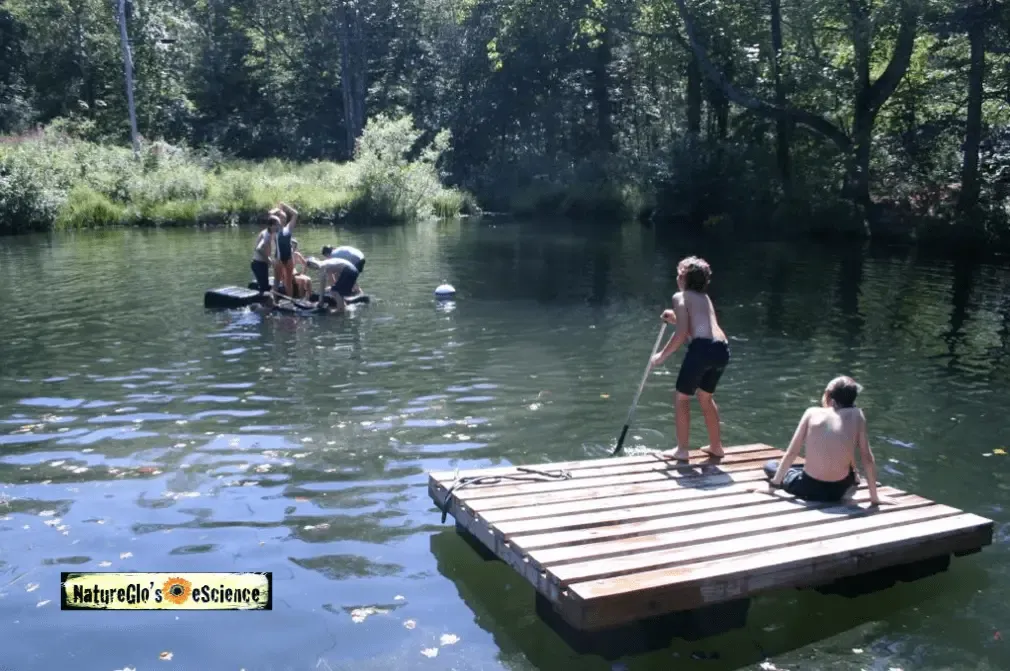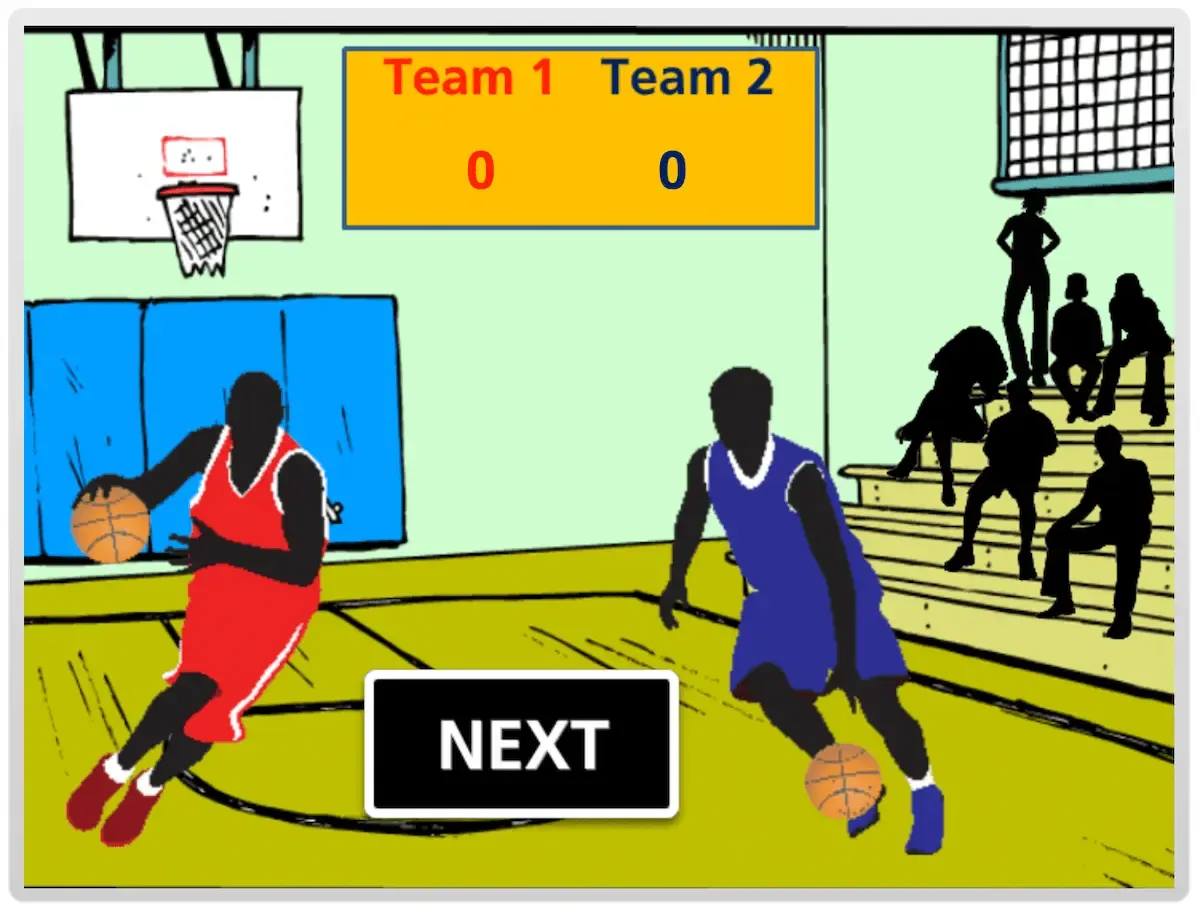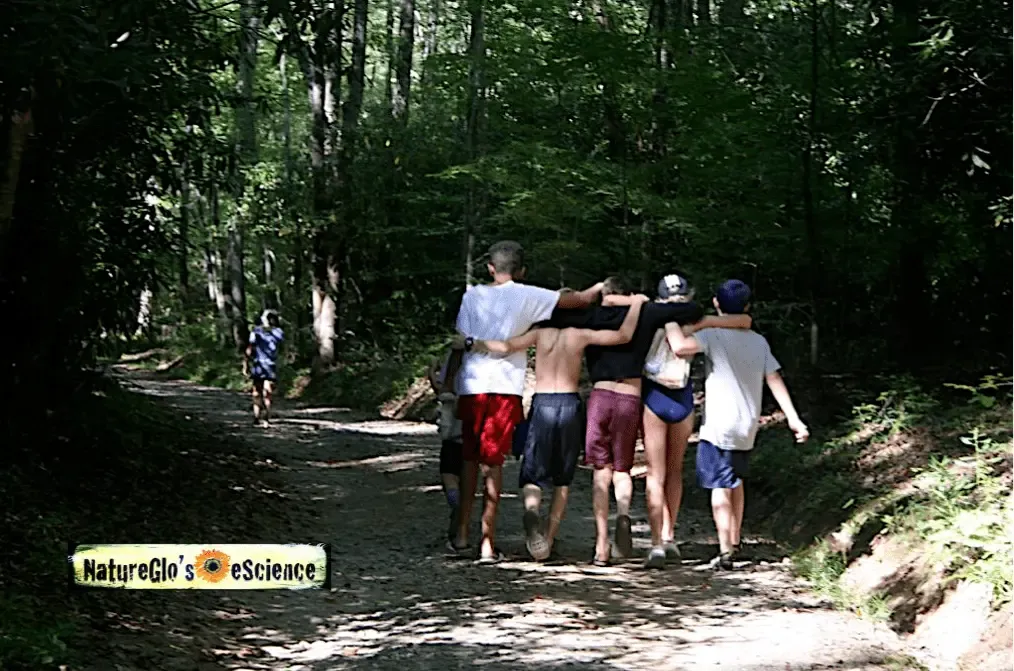3 Secrets on How to Start Gameschooling
Kids Language of Learning is Play. One thing I learned while being a middle school boarding house parent at a private middle school, was that middle schoolers innately love and are passionate about playing games.
They would have played games all day everyday, but, the school had other adult curriculum agendas. Most of the staff were stuck in the mindset of “preparing the kids for high school”, of which I ended up disagreeing with in the long run.

Middle-schoolers-pond-free-play
Gameschooling Math Using Magic: The Gathering
This small private school was filled with traditions and rituals. One of the kids’ favorite traditions is a roll playing card game called Magic: The Gathering, which was played by about half of the kids during every free moment they got. I never did quite catch on to this rather complex card game, but, I watched with great intrigue.
The cards had beautiful images of mythological creatures including dragons, sorcerers, angels and dinosaurs, to name a few. Had I had a better experience at the school, I’m sure I would have eventually picked up the game. One thing I picked up, is the game had a strong mathematical component. This, I felt, would have been the secret sauce of math learning for one of my dyslexic students, Bradley. Had he fully been able to deschool like he wanted, he could have learned math through playing Magic everyday, all without having to trudge through traditional math education.
If this private school were a Free school or Sudbury school, half of the kids would play Magic from dawn until dusk. It WOULD HAVE been played everyday, all day by many of the kids, most especially, Bradley.
Bradley Naturally Wanted to Deschool Math
14 year old Bradley (real name concealed for privacy reasons) was one of my Pre-algebra students. He was also 1 among 2 other teens, a non-binary student (13) and another boy, also 14, residing at the boarding house I co-parented at with Lena. Bradley read at a 2nd grade level and utterly refused to come to my Pre-Algebra class.
My feelings weren't hurt by Bradley not wanting to come to Pre-algebra class. It wasn't about me. My take was that he was too embarrassed about being so far behind in math that he didn’t want his peers to witness it. He was laden with the worst case of math phobias I've ever seen in my decades of K - 12 education experience.
Instead of attending Pre-algebra class, Bradley wanted 1-on-1 attention, which he got. He went through two teachers, resisting doing math with each of them. They coerced him into doing it, and somewhat succeeded. Poor Bradley. He and I were both at the wrong school.
Thankfully, there was staff available to be with him 1-on-1. I know now that he just wanted the social interaction with the young teachers. He wasn't interested in being force-fed any kind of math, and certainly not Pre-algebra. If only his choice could have been honored and he could have played magic instead with that tutor.
I was unfortunately, outnumbered in my “unschool” approach with Bradley.
The rest of the staff had more of a traditional education mindset approach. The “Curriculum Advisor” (oi, more heirarchies) pushed hard for Bradley to come back to my class. I felt his choice should have been honored to not have to attend any classes he didn’t want to.
That was another sticking point and why I’m no longer at this un-named private school. My “unschoolish” mindset DID NOT gel well there, despite it being a democratic school.
The Middle Schoolers Chose to Gameschool During Free Time
On one snowy, cold, wintery Saturday, all three of my boarding house students wanted to play games all day long. That’s what we did! Lena, myself, and her boy friend, Izzy, who came over, played games with the kids the entire day. They played Magic. (I was lost in it and just observed), Monopoly (I played) and a few other games that were mixed in to keep the day interesting.
One thing I learned was the value of kids playing games! We could have gameschooled the kids right through middle school had the kids and I had our way. But this school LOVES its traditions and are stuck in the age old hysteria that the kids “must be ready for high school” blah, blah, blah.
I firmly believe that the kids would have been even better prepared for moving on from this private school to public, private, or homeschool high school if they followed the kids guidance and gameschooled through middle school.
Bradley Discovered & Secretly Loved Gameschooling Math Through A Basketball Video Game
During most evenings, Lena and I would help the kids with their homework. Homework was yet another sticking point with me at the school. I'm a HUGE supporter of NO HOMEWORK ever, unless the child self-directs projects of their OWN choice. But, then, that's not considered homework. That's the child pursuing their own interests.

One evening, while struggling with Bradley to get through the Pre-algebra homework that I was forced to assign my class, I threw my hands up in utter frustration and turned to my laptop for help.
I knew that he loved playing basketball. After a quick Google search, I landed on fun basic math basketball video games found at Math-Play.com. I read aloud the instructions to him, demonstrated how to play the game, and he willingly joined in.
Playing the basketball math facts video game together was just the perfect solution for Bradley.
The results?
He loved it! He and I took turns playing the various animated multiplication, addition, subtraction, and division basketball games.
Wonder of wonders, Bradley started memorizing his basic math facts that same night using the basketball video games, which was super cool.
The downside, was that we could only play "sometimes" as the school discouraged devices save for homework use.
But, Yaaay for free online math games during select homework nights!
If you’re not quite convinced about the value of play and games for kids, consider this:
There’s a massive body of scientific research that backs up showing that kids are hard wired for learning best through play and games. Play is the language of learning for kids. Free play and games are HUGELY important components in the success of childhood learning.

The middle school kids enjoying free play and building lifelong friendships.
Our current education system, unfortunately, mostly beats this natural intuitive desire that kids have to play. They're instead, forced to conform to sitting at desks all day long. This sedentary model of education further robs kids of their valuable play time after school by saddling them with hours of homework.
No wonder there are so many emotional and mental disorders among our kids today then you can shake a stick out!
It’s preposterous! No, it's monstrous!
But, you can change this positively through starting to incorporate more Gameschooling in your home or school day.
Not sure how valuable Gameschooling is for your kids?
Consider this.
Social Skills Kids Learn Through Gameschooling
- Exercising patience – taking turns
- Follow directions
- Cooperation
- Decision making
- Strategizing
- Communication Skills
- Self-regulation
- Sharing
- Listening
- Focus and attention
And a host of other valuable skills including learning math, reading, and even writing through the stealth of playing games. You never want to bring that up though that your kids are learning academics through playing games as this can severely backfire on you.
This happened with Bradley one Saturday while Lena and I were playing Monopoly with him. The guilty adult party shall go un-named. But, it was brought up how Bradley was learning math through counting money.
He shut right down and refused to play any further until we dropped the subject of academics.
Lesson learned!
If you’ve not yet incorporated gameschooling into your homeschool, you’re in for a treat.
My 3 Secrets for How to start Gameschooling
#1. Locate a deck of cards.
#2. Practice and cultivate a play mindset.
#3. Go to https://bicyclecards.com/rules/ and pick out a few card games you and your kids can start playing together.
Don’t worry about what they’re learning and what checkboxes you should be checking off just yet.
Just focus on the fun part of gameschooling.
What’s the point? Connection. This is you and your kids opportunity to drop the curriculum for an hour or two and really relax, laugh, and enjoy each other’s company playing a few new card game. You might run into some attitudes along the way, and this in of itself is part of the learning experience.
Don’t give up gameschooling. Keep playing!
Ready to liberate your family from homeschool math curriculum drudgery through fun and real life connections?
I’ll take your hand and guide you personally in my new guide, Math Learning Secrets.
JUST $7 - BUY MATH LEARNING SECRETS
Are you going to implement some gameschooling this year?
Share in the comments below.
Sincerely,
Gloria Brooks aka NatureGlo


